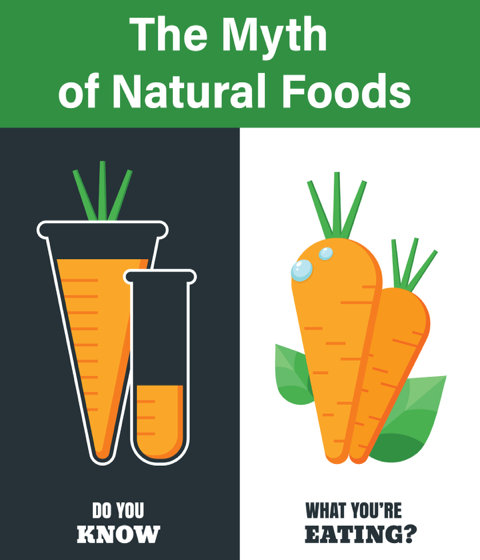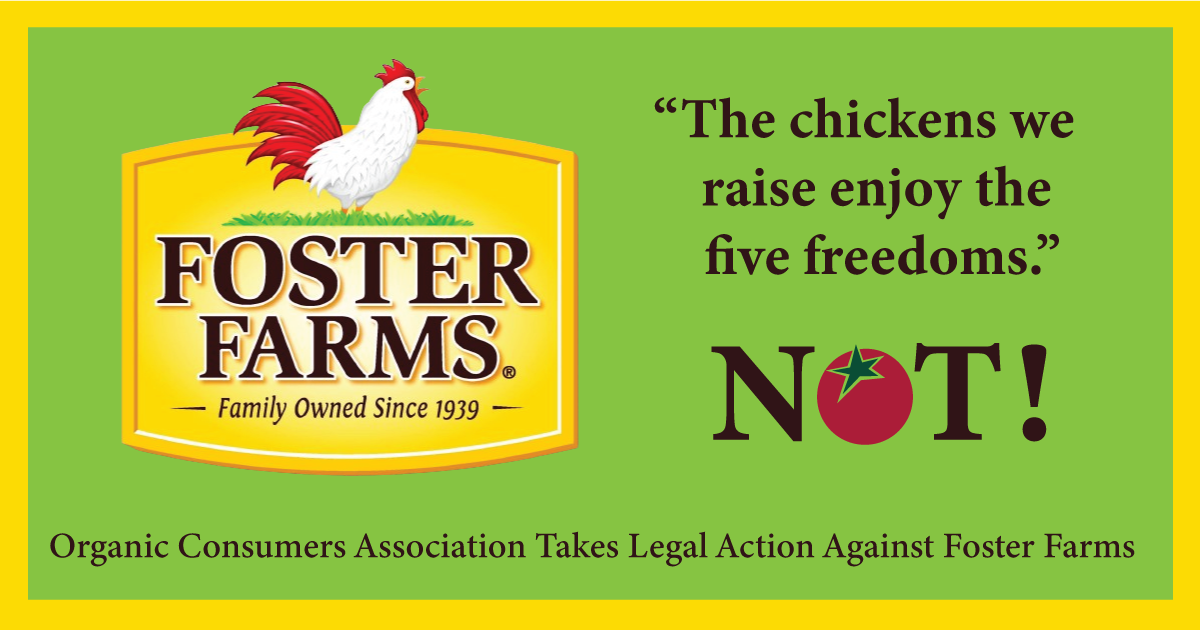The Myth of Natural
Consumers rely on labels, advertising and marketing information to help them choose products they believe to be safe, healthful and produced using practices that are aligned with their values. Many food companies exploit this fact. They knowingly mislead consumers by claiming their products are “natural” when in fact those products contain pesticides, genetically modified organisms (GMOs), antibiotics, growth hormones and artificial ingredients.
The most prevalent examples of false labeling and advertising are use of terms like “Natural,” “All Natural” and “100% Natural.”
Consumer demand for healthier, non-GMO, pesticide-free food is driving growth in the organic market. Sales of certified organic food and products reached $50 billion in 2017, amounting to more than 5 percent of all grocery store sales, including approximately 10 percent of all produce sales. That’s strong growth. But as long as consumers equate “natural” with certified organic, and as long as companies exploit that perception, the organic market will remain at a disadvantage.
A 2014 Consumer Reports poll found that 66 percent of consumers believe a product labeled “natural” has no artificial ingredients, pesticides or genetically modified organisms, and 86 percent believe that it should mean those things. In 2016, Consumer Reports released a new survey showing that 73 percent of consumers seek out foods labeled “natural.” Many consumers equate the word “natural” with “organic” and some even believe that “100% Natural” is better than certified organic.

Most Recent Headlines:
Take Action Today:
Featured Videos:
#76 Know Your Eggs | Total Human Optimization Podcast
A Short Message from the “False Advertising Industry”
Organic Bytes Newsletter
Read Current Issue — April 18, 2024
Newsletter #847: OCA Takes Legal Action Against Foster Farms

In This Issue:
- Organic Consumers Association Takes Legal Action Against Foster Farms
- Regenerating the Earth, Regenerating Our Health
- The Bird Flu Food Crisis
- Introducing Homeopathy, The Film
- Foods You Never Knew Could Help Your Sleep
- Most Effective and Safest Sunscreens
- Truth-Telling
- The Vorfreude Secret: 30 Zero-Effort Ways to Fill Your Life With Joy
- Toxins Found in General Mills ‘Loaded’ Cereal
- Consumers Back Worldwide Single-Use Plastics Ban in New Survey
- Educate to Regenerate
- Other Essential Reading and Videos for the Week
Scientific Studies:
Video Library
A Short Message from the “False Advertising Industry”
#76 Know Your Eggs | Total Human Optimization Podcast
Natural’s Best Friend
“All Natural” Sleeping Pills
What is Natural?
